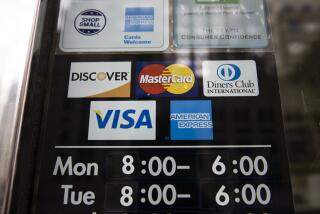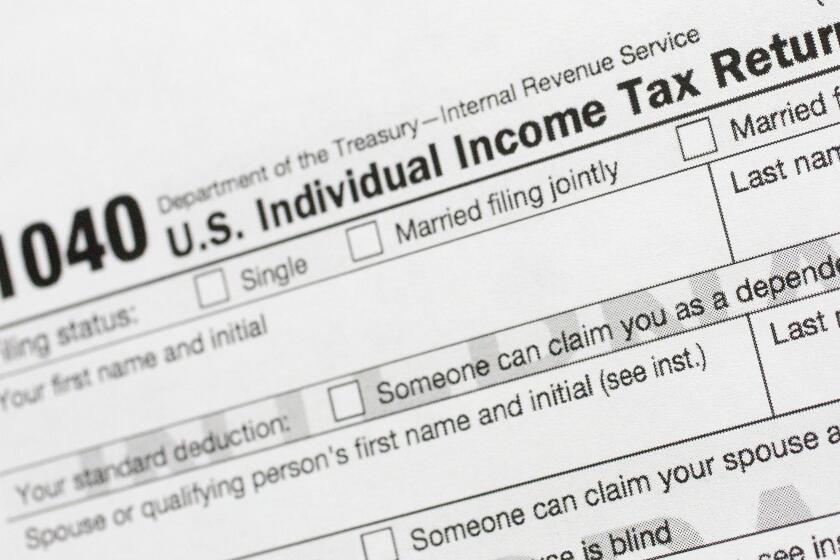Consumer borrowing surges as Americans turn more to credit cards
WASHINGTON -- Consumer borrowing jumped more than expected in May as Americans charged away on their credit cards, the Federal Reserve reported Monday.
Total installment credit, including auto and student loans, increased at an 8.3% annual rate in May, the fastest pace in a year, the Fed said. The borrowing increased at a 4.6% annual rate in April.
Total consumer credit debt, which does not include mortgages, rose by $19.6 billion in May to a record $2.84 trillion. Analysts had projected an increase of about $12.5 billion.
Quiz: Do U.S. corporations pay too little in taxes?
Credit cards and other revolving credit drove the increase, rising at a 9.3% annual rate in May.
It was a sharp jump from April, when revolving credit rose at just a 1.1% annual rate, the Fed said. The pace was the highest since May 2012.
The increase in revolving credit probably reflected rising consumer confidence and low interest rates.
But the trend might not continue as interest rates have risen in recent weeks as financial markets anticipate the end of the Federal Reserve’s bond-buying stimulus program, which helped push long-term rates down.
Auto loans and other non-revolving credit increased at a 7.9% annual rate in May, compared with 6.2% in April.
ALSO:
What to look for as earnings season kicks off
Movie theaters in airports? That probably won’t fly
Bond investors face a reckoning as interest rates jump
More to Read
Inside the business of entertainment
The Wide Shot brings you news, analysis and insights on everything from streaming wars to production — and what it all means for the future.
You may occasionally receive promotional content from the Los Angeles Times.











